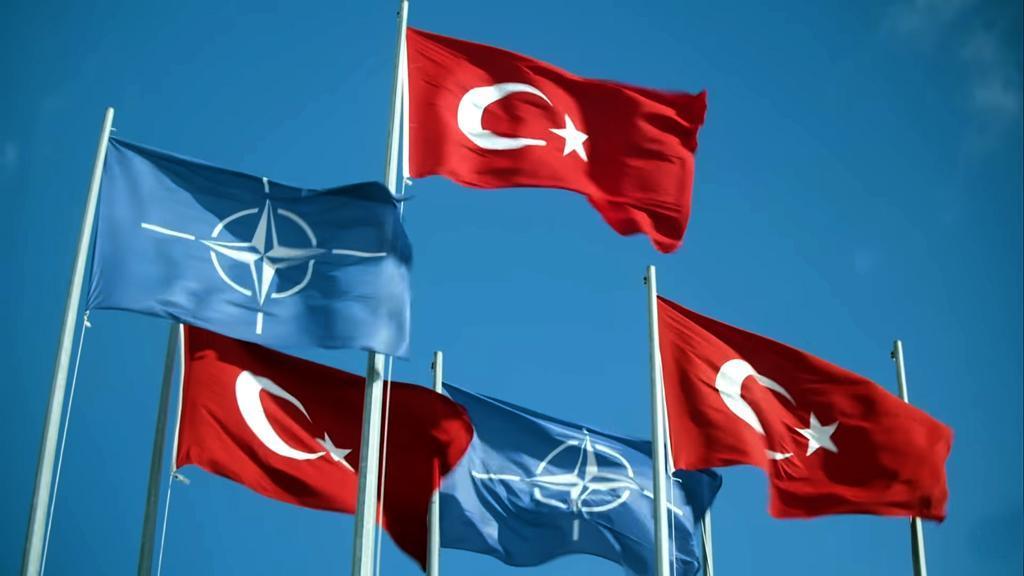
NATO allies should display concrete solidarity with Turkey, President Recep Tayyip Erdoğan told NATO Secretary-General Jens Stoltenberg in a meeting on Oct. 5, according to a statement released by the Presidential Communications Directorate.
Erdoğan and the NATO chief had discussions in the capital Ankara after the latter’s initiative yielded the result of establishing a mechanism aiming to prevent any accidents over the conflict between Turkey and Greece in the eastern Mediterranean.
According to a statement released by the Communications Directorate, Erdoğan and Stoltenberg discussed Turkey-NATO relations and regional developments, particularly regarding the eastern Mediterranean, Libya and Syria.
“Despite the negative behavior of Greece, Turkey has supported the NATO initiative to reduce the risk of accidents and incidents between Turkish and Greek military elements in the eastern Mediterranean since the very beginning,” Erdoğan said in the meeting.
The president underlined that Turkey has been “singlehandedly battling the refugee crisis for the security and stability of the entire region and Europe and is the only NATO ally making sincere efforts to restore balance in Libya.”
“Turkey protects the rights and interests of both itself and its allies and expects the same from alliance members,” Erdoğan said, adding that some NATO allies’ cooperation with the PKK/PYD/YPG terror group and their patronage of FETÖ poison the alliance’s solidarity.
“Good meeting with President @RTErdogan in Ankara today on a range of security issues. We discussed the military de-confliction mechanism developed @NATO for the #EastMed,” Stoltenberg wrote on Twitter on Oct. 5.
He said he hoped for the de-confliction mechanism recently reached between Ankara and Athens at NATO-hosted meetings could create space for diplomatic efforts.
Turkish and Greek military delegations have been engaged in a series of NATO-hosted technical talks since Sept. 10 after escalated tensions in the eastern Mediterranean as Greece has disputed Turkey’s energy exploration activities.
Turkey – the country with the longest coastline in the Mediterranean – had sent its drillships to explore energy on its continental shelf, asserting its rights in the region as well as those of Turkish Cyprus.
Greece ready for dialogue with Turkey' Greek premier
Meanwhile, Greece welcomes Turkey's first step towards de-escalating tensions in the Eastern Mediterranean and is "always ready for dialogue", Greek Prime Minister Kyriakos Mitsotakis said on Oct. 6.
Mitsotakis met NATO Secretary-General Stoltenberg in Athens to discuss the latest developments in the Eastern Mediterranean and de-conflicting mechanism to reduce tensions between the two NATO allies.
“We have obviously discussed everything that has happened in recent months in the Eastern Mediterranean, things that threaten the peace, stability, and the cohesion of NATO itself,” Mitsotakis said at a joint news conference at
the Maximos Mansion, the office of the Prime Ministry.
"It's not a bilateral issue. It concerns all the partners of the North Atlantic pact and is a challenge to Europe as a whole," the prime minister said.
Greece "is committed to abstaining from any threat or use of force" as laid out in the founding treaty signed in Washington, he added.
Turkish, German leaders discuss ongoing regional issues
Erdoğan also on Oct. 6 spoke with Germany's chancellor on a number of issues, including bilateral relations, the Eastern Mediterranean, Libya, and developments in the Azerbaijan-Armenia conflict, said Turkey's Communications Directorate.
Speaking by video link, Erdoğan told German Chancellor Angela Merkel that the issue of Azerbaijan's lands occupied by Armenia needs to be solved through U.N. resolutions, said a directorate statement.
He added that a lasting solution may be achieved by implementing U.N. resolutions and following international law.